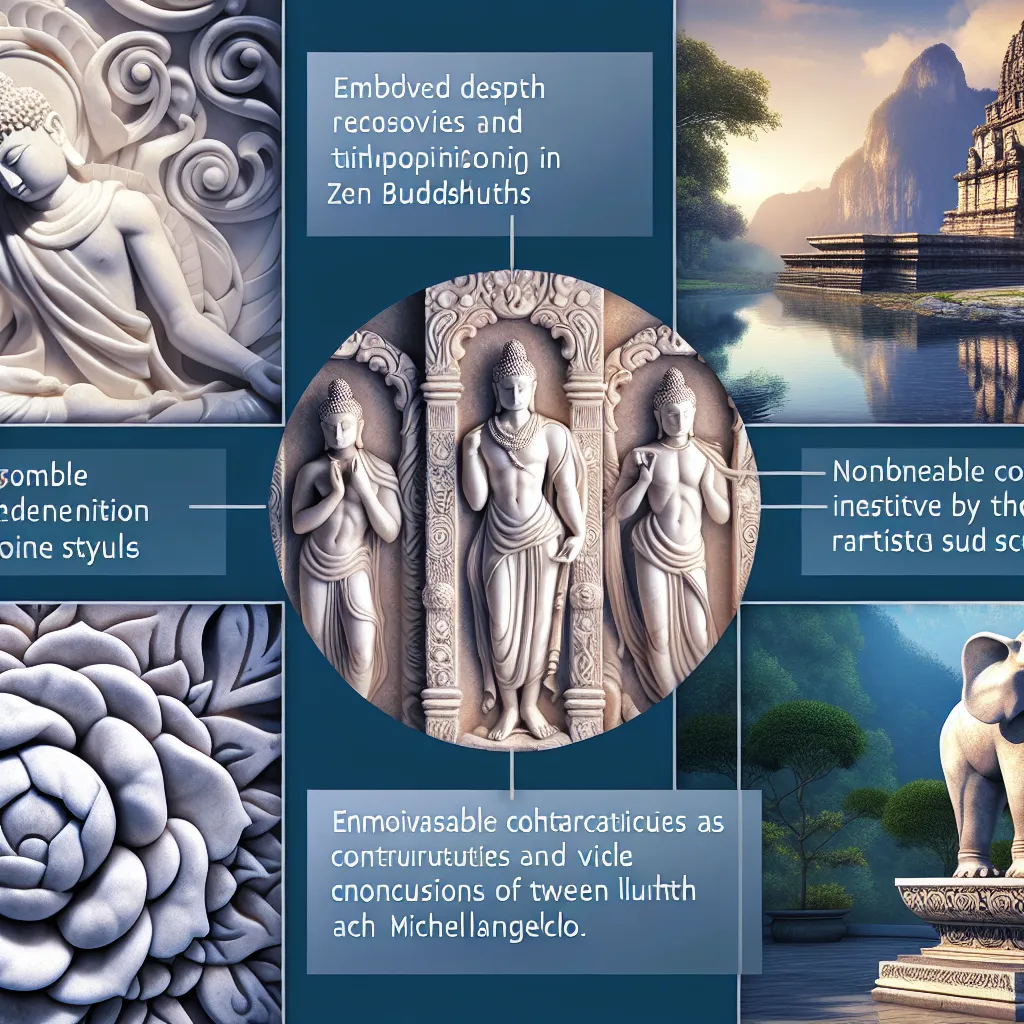
- Published on
- Authors

- Name
- You
The Four Noble Truths in Zen Buddhism: Core Teachings and Insights
Zen Buddhism, a school of Mahayana Buddhism that emphasizes meditation and intuition, offers a distinct interpretation of the Four Noble Truths—a foundational concept originally articulated by Siddhartha Gautama, the Buddha. These truths provide a roadmap to recognizing and transcending suffering, ultimately guiding practitioners on a path to enlightenment. Let's explore the core teachings of the Four Noble Truths within the context of Zen Buddhism and the profound insights they offer.
The Four Noble Truths
1. The Truth of Suffering (Dukkha)
In both traditional and Zen Buddhism, the first noble truth acknowledges the existence of suffering. However, Zen places a unique emphasis on direct experience and mindful awareness of suffering. Dukkha encompasses not just physical pain but also existential dissatisfaction.
Key Insight: Zen encourages practitioners to fully engage with and observe their suffering without attachment or aversion. This non-dualistic approach reveals the impermanent nature of suffering.
2. The Truth of the Cause of Suffering (Samudaya)
The second truth identifies the root causes of suffering, primarily craving (tanha) and ignorance (avidya). In Zen, this extends to the notion of a separate self, which Zen teaches is an illusion.
Key Insight: Through zazen (seated meditation), Zen practitioners gain clarity about the nature of their desires and the misconception of a permanent self, leading to insight into the origins of their suffering.
3. The Truth of the End of Suffering (Nirodha)
The third noble truth asserts that ending suffering is possible. In Zen, this cessation (nirvana) is often referred to as 'kensho' or 'satori'—moments of sudden enlightenment or insight.
Key Insight: Zen promotes the understanding that enlightenment is not a distant goal but an intrinsic state of being, accessible through the practice of mindfulness and presence.
4. The Truth of the Path to the End of Suffering (Magga)
The fourth truth outlines the Noble Eightfold Path as the method for overcoming suffering. Zen practice merges with this path, emphasizing actions, meditation, and wisdom.
| Noble Eightfold Path | Zen Practice |
|---|---|
| Right Understanding | Insight (Prajna) through meditation |
| Right Intention | Committed resolve in practice |
| Right Speech | Mindful communication |
| Right Action | Ethical conduct (including precepts) |
| Right Livelihood | Harmonious living |
| Right Effort | Diligent effort in practice |
| Right Mindfulness | Continuous mindfulness (Zanshin) |
| Right Concentration | Deep concentration (Samadhi) |
Key Insight: Zen practice simplifies and integrates these eight aspects into daily life, encouraging a seamless flow between meditation and action.
Integrating Science and Mysticism
Modern science, especially psychology and neurobiology, increasingly validates the benefits of mindfulness and meditation. Studies show that consistent meditation can alter brain structures, enhance emotional regulation, and improve overall well-being. This scientific perspective echoes the transformative promises of the Four Noble Truths in relieving human suffering.
Mystical Wisdom and Mindful Practice
The mystical component of Zen lies in its experiential wisdom—where understanding arises not from intellectualization but from direct experience in the present moment. This synthesis of scientific validation and ancient mystical teachings suggests a powerful harmony, weaving together the tangible and the transcendental aspects of human experience.
Conclusion
The Four Noble Truths serve as a profound guide, whether approached through traditional or Zen lenses. For Zen practitioners, these truths are not mere philosophical concepts, but living, breathing practices that permeate every aspect of life, offering a path towards transcending suffering and realizing innate enlightenment. Thus, the journey of Zen Buddhism harmonizes the rhythms of ancient wisdom and contemporary insight, illuminating a path of clarity and compassion in the modern world.
